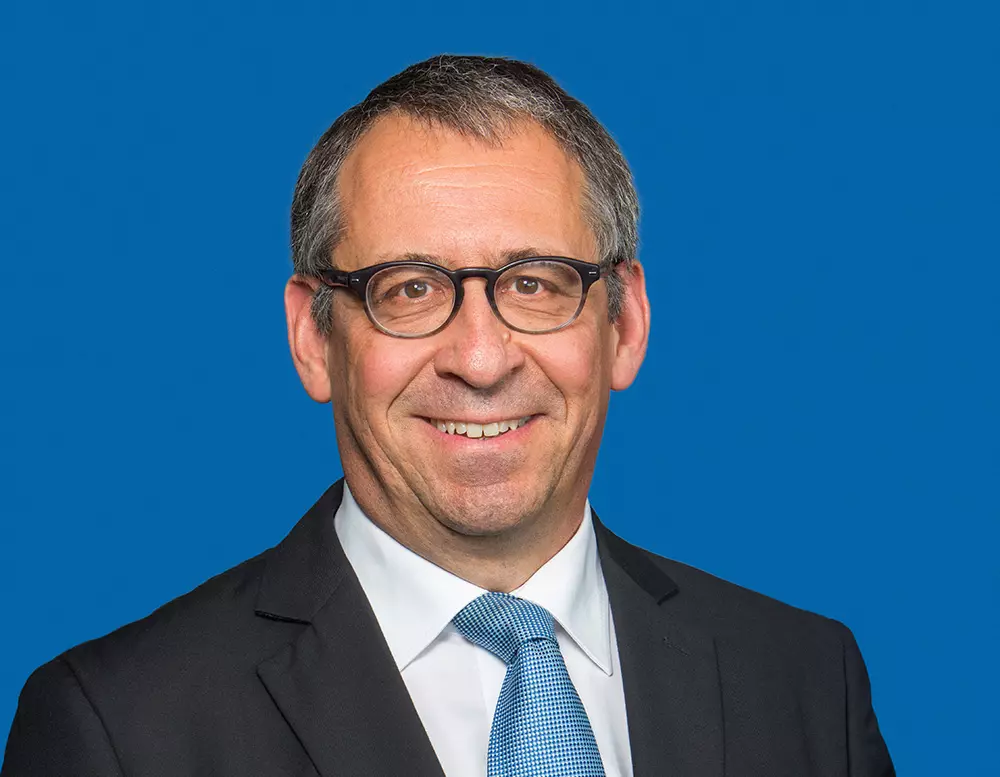Editorials Annual Report 2022
Moving forward as a trio

Dr. Silvia Steiner, Government Councillor and President of the Council of the Zurich Universities of Applied Sciences and Arts
The umbrella organisation Zurich Universities of Applied Sciences and Arts (ZFH) has disbanded. In the future, the Zurich University of Applied Sciences (ZHAW), the Zurich University of the Arts (ZHdK) and the Zurich University of Teacher Education (PHZH) will be able to operate and present themselves more independently and with greater strength. They have long evolved and are now heading down their own paths. And by successfully completing the institutional accreditation process, Zurich’s universities of applied sciences and arts have shown that they are ready for the future.
While the universities will now operate more independently, this does not mean they will have to fend for themselves. Quite the contrary, actually: they will be moving forward as a trio, further building on their previous successful cooperation.
This is critical, since the canton of Zurich does not want to weaken its position as a premier research and innovation hub. The canton of Zurich ranked fifth in the 2022 European Innovation Scoreboard – an excellent result. The rating compares innovation performance across EU member states and selected third countries. Switzerland’s top-ranking status is largely thanks to Zurich’s significant contribution, and to preserve that status, we must continue to work together: the universities of applied sciences among themselves and by joining forces with other universities, in the canton, at the national level – as well as on the international stage.
After all, we should not forget that universities cannot pursue successful research and teaching on their own. Being excluded from the Horizon Europe research and innovation programme has made things more difficult.
We must not just sit idly by as Switzerland and the EU engage in a political tug of war, but instead let go of the idea that cooperation with Brussels is the only path forward. We need to take action, and I am convinced that we can achieve great things on our own. While Switzerland depends on the EU, the opposite is also true. Our universities provide European partners with a range of invaluable services. Their network extends far beyond Europe, and they have specific competences that are essential to certain research projects conducted at European universities.
We also need to keep up with the digital transformation. The Digitalization Initiative of the Zurich Higher Education Institutions (DIZH) is making an important contribution in this area, and progress has been remarkable. In 2022, the DIZH’s set-up phase was successfully completed. Within the innovation programme, further calls for highly topical long-term projects were issued.
Among other things, the DIZH focuses on various projects on handling emergency situations, which highlights its efforts to conduct research that is closely aligned with societal needs. In the context of Russia’s war in Ukraine, a number of innovative projects received quick support. These findings can also be applied in other emergency situations.
To ensure that Zurich’s society, economy and administration do not get outpaced, it is crucial to have enough skilled workers. As in past years, Zurich’s universities of applied sciences and arts significantly contributed to the fight against the shortage of skilled professionals, either by training additional teaching staff or by producing additional graduates in the fields of science, technology, engineering and mathematics (STEM) and health sciences.
We can thus safely say that in 2022, Zurich-based universities of applied sciences and arts continued to play their part in science and society at large. And they will keep on doing so, working together as a trio. I would like to sincerely thank all employees for this achievement and for their great commitment!
Using research to train future professionals

Prof. Dr. Andrea Schenker-Wicki, Member of the Council of the Zurich Universities of Applied Sciences and Arts, ZHAW consultant
Dr. Matthias Kaiserwerth, Member of the Council of the Zurich Universities of Applied Sciences and Arts, ZHAW consultant
Dr. Thomas Andreas Ulrich, Member of the Council of the Zurich Universities of Applied Sciences and Arts, ZHAW consultant
Combining teaching and research is an indispensable part of modern vocational higher education. Teaching benefits enormously from the market and practice-oriented questions that are explored at the ZHAW. This ensures that research findings are incorporated into the current curriculum and that graduates are abreast of the latest scientific research. Students also make valuable contributions in this area by participating in research projects and writing project papers and theses.
The looming energy shortage highlights the urgent need for renewable energies. Many technologies are already available, and the focus now lies on how they can be implemented. At the Institute of Energy Systems and Fluid Engineering (IEFE), students are using the Renewable Electrical Energy Lab and the cold laboratory to examine, for example, which solar module-level power electronics are most suitable for end consumers. Other students in turn are providing precise findings through their theses, supporting the energy turnaround. This often happens in collaboration with or on behalf of industry partners. Examples of these cooperations include the evaluation of the life cycle assessment (LCA) of the first high-altitude floating solar farm or the framework to decarbonise the economy.
Climate change, a growing world population and limited resources: as part of the Future of Food program, the ZHAW is researching where food and nutrition systems are headed. This includes, for example, how to rethink the way we produce, process and consume food while developing new ideas to guarantee enjoyable and healthy nutrition. Students in the MA programme in Preneurship for Regenerative Food Systems aim to extend (research) knowledge independently, develop new research questions and initiate the transformation process of these systems using innovative business models. With the construction of the new Future of Food campus, which will be ready in 2023, the ZHAW is bringing all activities under one roof. It also has various partnerships, including with Food Campus Berlin, creating a perfect setting for students.
The digitalisation of healthcare raises high expectations. With the Digital Health Lab, the ZHAW already has a platform that brings together professional knowledge from the fields of biomedicine, technology, health science and business. Research in the field of digital health has shown that there is a demand for specialists with an entirely new skill set. The ZHAW has responded to these changes by launching its two interdisciplinary BA degree programmes in Applied Digital Life Sciences and Biomedical Laboratory Diagnostics. In addition, the ZHAW is offering a BA degree programme in Medical Informatics from 2023 onwards.
All of these examples show how the ZHAW creates an environment that enables students to acquire essential skills and find the perfect environment for their own projects. Combined with practice-oriented teaching, the students learn about current important research issues and challenges in their future professional fields. In this way, the ZHAW provides its graduates with an excellent education while training a qualified workforce and sharpening Switzerland’s competitive edge.
Adapting to meet future challenges

Prof. Dr. Jean Marc Piveteau, President
The ZHAW is undergoing a transformation process aimed at fostering sustainable development and societal, ecological and economic sustainability for the future. In 2022, as in past years, it continued to drive this change forward.
One of the things the Covid-19 pandemic has shown us is that the relationship between society and science is changing. There is a need for scientific research to become more transparent, accessible and inclusive while fostering stronger dialogue with society. This is where the Open Science movement comes in. For example, data and publications from publicly funded research projects ought to be accessible for everyone. Open Science thus fundamentally changes the way the research community collaborates with society at large.
A key player in the Open Science movement in Switzerland, the ZHAW is already leading the way in driving this transformation with several projects. Pure expertise alone is no longer sufficient to tackle current social, ecological and economic challenges. Instead, new solutions and an entrepreneurial mindset are needed. To this end, in 2022 the ZHAW launched the strategic initiative “ZHAW entrepreneurship”, which organises a range of events and activities with the aim of building an entrepreneurial community consisting of students, staff as well as business and societal actors. This community helps accelerate the ZHAW’s transformation into an entrepreneurial university.
The new Applied Gerontology AGe+ research area connects various Schools and areas of activity, including ZHAW staff and students who investigate issues of old age. Collaboration across disciplinary boundaries is essential in addressing societal challenges. In 2022, the ZHAW launched several interdisciplinary study programs to train the professionals that our society and the economy needs.
After all, any change has to be sustainable. With its sustainability strategy and the “ZHAW sustainable” strategic initiative, the ZHAW is doing its part in fostering a sustainable society. Launched in 2021, the Sustainable Impact Program (SIP) now supports over 20 projects in the area of sustainability, teaching and research by ZHAW staff and students. A survey carried out among students and staff has also shown that the ZHAW’s sustainability strategy enjoys broad support, while there is still some work to be done when it comes to increasing the visibility of sustainability measures.
The new environment also changes a few things for ZHAW employees. In July 2022, the canton of Zurich’s Government Council adopted the new personnel ordinance of the Universities of Applied Sciences for academic staff. The new ordinance, which will come into effect on 1 August 2024, presents opportunities for both the ZHAW and individual employees, especially young researchers.
Transformation is shaping the ZHAW and will continue to accompany us. We want to help shape it, so that we’re ready for the future.
s is not limited to the classroom, and the provision of high-quality education necessitates personal contact between students and lecturers. In addition to the existing structure, we will also examine the strategic priorities and measures defined in the “Lifelong learning” and “Education and digital transformation” strategies so that we can fully exploit the potential offered by the new education formats.